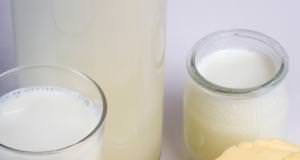Soy/Milk Protein Dietary Supplements Linked To Lower Blood Pressure
Milk and soy protein supplements were associated with lower systolic blood pressure compared to refined carbohydrate dietary supplements, in a study reported in Circulation: Journal of the American Heart Association.
Using Olive Oil In Your Diet May Prevent A Stroke
A new study suggests that consuming olive oil may help prevent a stroke in older people. The research is published in the June 15, 2011, online issue of Neurology®, the medical journal of the American Academy of Neurology.
Atherosclerotic Plaques Form During A Late And Limited Time Period In...
In a new study performed in humans, researchers from Sweden's Karolinska Institutet have determined the age of atherosclerotic plaques by taking advantage of Carbon-14 (14C) residues in the atmosphere, prevailing after the extensive atomic bomb tests in the 1950s and 60s.
Blood Pressure: 100 Million Americans May Be Unnecessarily Labeled Abnormal
As many as 100 million Americans may currently be misclassified as having abnormal blood pressure, according to Dr. Brent Taylor from the Veterans Affairs Health Care System in Minneapolis and the University of Minnesota and his colleagues. Their findings show that these people are not actually more likely to die prematurely than those with 'normal' blood pressure, i.e. below 120/80.
New Cell Therapy A Promising Atherosclerosis Treatment
Researchers at Karolinska Institutet have shown in a new study on mice, that cell therapy can be used to reverse the effect of 'bad' LDL cholesterol and reduce the inflammation that leads to atherosclerosis. The new cell therapy, which is presented in the scientific journal Circulation, can open the way for new therapies for stroke and myocardial infarction if the results prove translatable to humans.
Increasing Triglyceride Levels Linked To Greater Stroke Risk; Study Finds Higher...
A study by researchers in Denmark revealed that increasing levels of non-fasting triglycerides are associated with an increased risk of ischemic stroke in men and women. Higher cholesterol levels were associated with greater stroke risk in men only. Details of this novel, 33-year study are now available online in Annals of Neurology, a journal published by Wiley-Blackwell on behalf of the American Neurological Association.
New Hybrid Drug, Derived From Common Spice, May Protect, Rebuild Brain...
Whether or not you're fond of Indian, Southeast Asian and Middle Eastern food, stroke researchers at Cedars-Sinai Medical Center think you may become a fan of one of their key spices. The scientists created a new molecule from curcumin, a chemical component of the golden-colored spice turmeric, and found in laboratory experiments that it affects mechanisms that protect and help regenerate brain cells after stroke.
Stroke Rising Among Young People
More young people and adults in their 30s and 40s are being hospitalized for stroke, even as stroke rates are dropping in older people, new data show. The findings, reported this week at the American Stroke Association conference in Dallas, may be a sign that that rising rates of obesity, diabetes and high blood pressure among teenagers and young adults are taking a toll. Or it may simply be that physicians have improved their diagnosis and reporting of stroke in young people during the past decade.
Common Painkillers Linked To Increased Risk Of Heart Problems
The drugs include traditional non-steroidal anti-inflammatory drugs (NSAIDS) as well as new generation anti-inflammatory drugs, known as COX-2 inhibitors. The researchers say that doctors and patients need to be aware that prescription of any anti-inflammatory drug needs to take cardiovascular risk into account.
Liver Disease A Possible Predictor Of Stroke
People suffering from fatty liver disease may be three times more likely to suffer a stroke than individuals without fatty liver, according to a study by researchers at St. Michael's Hospital and the London Health Sciences Centre. The study is the first to find a link between nonalcoholic fatty liver disease -- a disease characterized by the accumulation of fat in the liver in non drinkers -- and stroke.
Bacteria Eyed For Possible Role In Atherosclerosis
Dr. Emil Kozarov and a team of researchers at the Columbia University College of Dental Medicine have identified specific bacteria that may have a key role in vascular pathogenesis, specifically atherosclerosis, or what is commonly referred to as "hardening of the arteries" -- the number one cause of death in the United States.
Component In Common Dairy Foods May Cut Diabetes Risk, Study Suggests
Scientists at the Harvard School of Public Health (HSPH) and collaborators from other institutions have identified a natural substance in dairy fat that may substantially reduce the risk of type 2 diabetes. The compound, trans-palmitoleic acid, is a fatty acid found in milk, cheese, yogurt, and butter. It is not produced by the body and so only comes from the diet.













